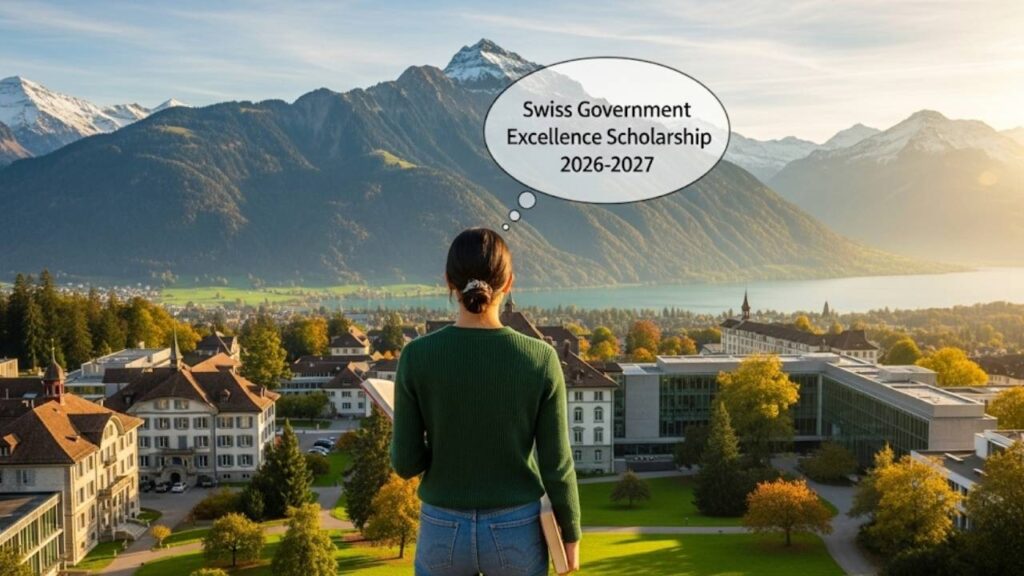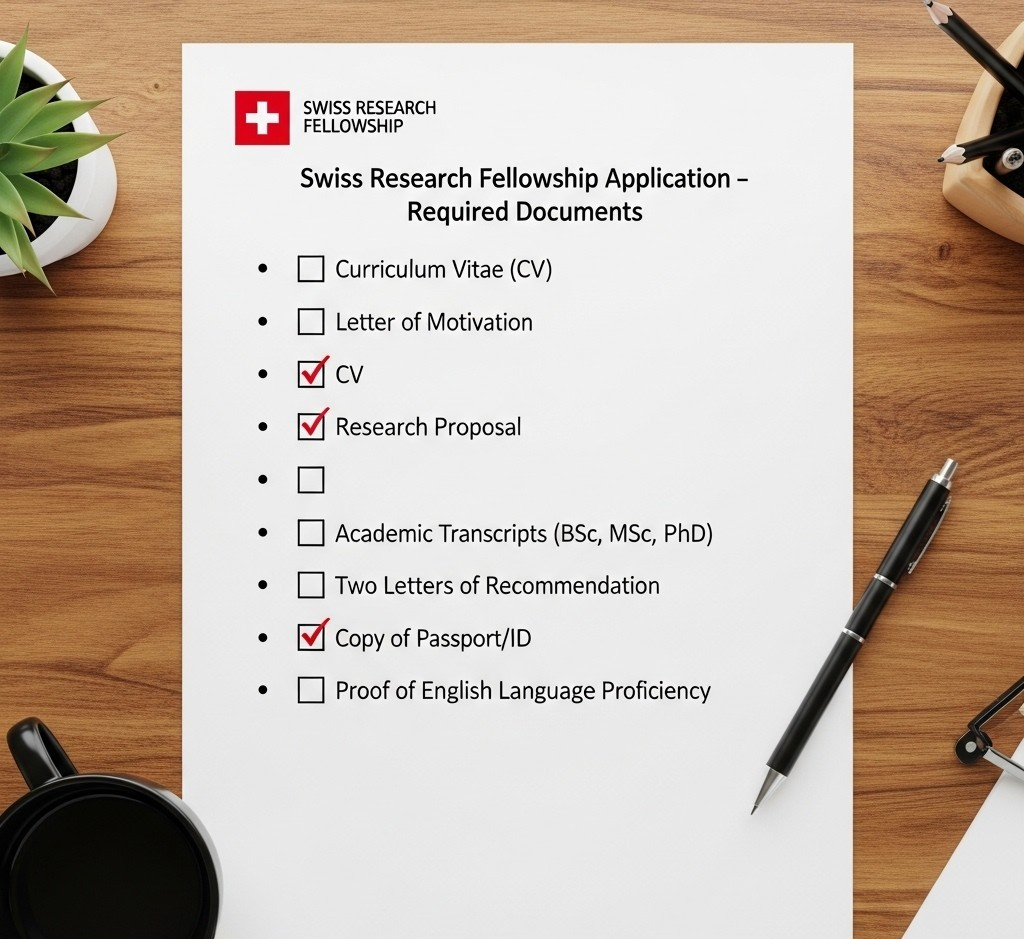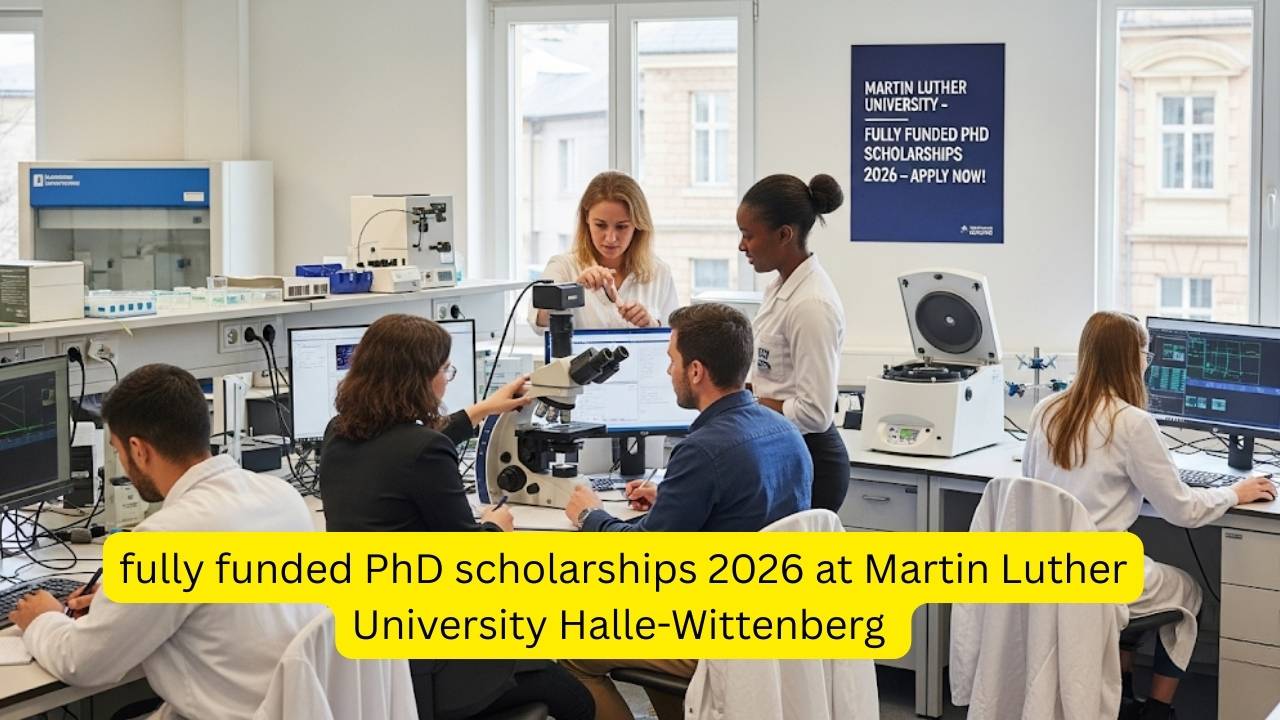The Swiss Government Excellence Scholarship 2026-2027 application window is opening soon, and for aspiring researchers and artists, this is an opportunity that can define a career. If you’ve been dreaming of pursuing a PhD or postdoctoral research in the heart of Europe, surrounded by pristine landscapes and world-class innovation, you’re in the right place. This guide is designed to be your trusted companion, breaking down the entire process into clear, actionable steps to help you craft a truly excellent application.

| Key Fact | Detail |
|---|---|
| Scholarship Focus | Primarily for postgraduate researchers (PhD, Postdoctoral, Research Fellowships) and artists. Master’s scholarships are rare and offered to a very limited number of countries. SERI Website |
| Application Window | Applications typically open in early August and close between September and December, depending on the applicant’s country. The 2026-2027 cycle opens on August 4, 2025. |
| Key Requirement | A letter of support from a host professor at a Swiss university is mandatory for most research-based applications and is a critical selection factor. SERI Application Guidelines |
Being a scholar is an immersive experience. Beyond your research, you’ll be part of a vibrant international community. Universities often host events for scholars, and the central location of Switzerland makes it easy to explore Europe.
What Makes the Swiss Government Excellence Scholarship So Prestigious?
Awarded by the Federal Commission for Scholarships for Foreign Students (FCS), this scholarship isn’t just about financial support; it’s a mark of distinction. It opens doors to Switzerland’s globally renowned public universities, federal institutes of technology, and universities of applied sciences.
Think of it as your all-access pass to an ecosystem of innovation. Switzerland consistently ranks among the most innovative countries in the world, and as a scholar, you are placed right at the center of that action.
The benefits are comprehensive:
- Generous Monthly Stipend: Covers living expenses comfortably. For example, PhD stipends are typically around CHF 1,920 per month.
- Full Tuition Waiver: Your tuition fees are waived at your host institution.
- Health Insurance: Mandatory Swiss health insurance is covered.
- Travel and Housing: A one-time flight allowance and a special lodging allowance are often provided.
This is a fully funded PhD Switzerland experience that allows you to focus entirely on your research without financial burdens.

Are You Eligible? Understanding the Core Requirements
Before you dive in, it’s crucial to understand who this scholarship is for. The FCS has specific goals, and your profile needs to align with them.
Scholarship Types Explained
The program is divided into two main categories:
- Research Scholarships: This is the most common category and includes:
- Research Fellowships: For highly qualified postgraduate researchers from all academic fields who want to pursue research in Switzerland.
- PhD Scholarships: For students planning to complete a full PhD in Switzerland.
- Postdoctoral Scholarships: For junior researchers who have already completed their PhD.
- Art Scholarships: Offered to art students from a limited number of countries who wish to pursue an initial Master’s degree at a Swiss conservatory or university of the arts.
It’s important to note: This scholarship program is generally not for Bachelor’s or Master’s students, with the specific exception of the Art Scholarship.
General Eligibility Checklist
While the exact criteria vary by country, some general rules apply to almost everyone applying for a research or PhD scholarship:
- Academic Background: You must hold a Master’s degree or equivalent before the scholarship begins in September 2026.
- Contact with a Host Institution: This is the big one. You must have an academic supervisor at your chosen Swiss university. This means you need a letter of support from a professor who has agreed to mentor you.
- Research Proposal: You need a well-defined and compelling research proposal that outlines your project.
- Age Limit: For research and PhD scholarships, many countries have an age limit (e.g., born after a certain date, usually making applicants no older than 35). Always check your country’s specific factsheet.
The Most Important Rule: Check Your Country’s Specifics!
Switzerland maintains diplomatic relations with over 180 countries, and the scholarship offerings and deadlines are tailored for each one. Your first and most important step is to find your country on the official country list.
This will lead you to the website of the Swiss embassy or consulate responsible for your region. There, you will find the exact application package, eligibility criteria, deadlines, and contact information. Do not skip this step!
Your Application Timeline for the Swiss Government Excellence Scholarship 2026-2027
Timing is everything. The window feels long, but preparing a high-quality application takes months. Here’s a strategic timeline:
- Now – August 2025: The Research Phase
- Identify potential Swiss universities and professors in your field.
- Start reaching out to them with a concise introductory email, your CV, and a brief project idea. The goal is to find a host professor.
- August 4, 2025: Applications Officially Open
- Download the official application package from your local Swiss embassy’s website.
- September – November 2025: The Critical Preparation Window
- Work with your confirmed host professor to refine your research proposal.
- Request your letters of recommendation.
- Gather all required documents (transcripts, diplomas, language certificates, etc.).
- Write and perfect your motivation letter.
- Early December 2025 (check your specific deadline!): Submission
- Submit your complete application as instructed by the Swiss representation in your country. Deadlines are strict.
- May 2026: The Decision
- Applicants are typically informed of the final decision by the end of May.
Crafting a Winning Application: A Step-by-Step Guide
In my experience advising students, the most successful applicants are those who are methodical and start early. The single most critical factor is securing a strong letter of support from a host professor.
Step 1: Secure Your Host Professor (The Make-or-Break Step)
You cannot get this scholarship without a professor in Switzerland who wants to host you.
- How to Find Them: Use university websites (like ETH Zurich, EPFL, University of Geneva) to browse department pages and faculty profiles. Look for professors whose research aligns perfectly with your interests.
- How to Contact Them: Write a professional, personalized email. Do not send a generic mass email.
- Subject: “Prospective PhD/Postdoc Candidate for Swiss Government Excellence Scholarship”
- Body: Briefly introduce yourself, state your admiration for their specific work, explain how your research interests align, and mention your intent to apply for the scholarship.
- Attachments: Attach your academic CV and a one-page draft of your research idea.
Step 2: Develop a World-Class Research Proposal
Your proposal is the academic heart of your application. It should be clear, innovative, and feasible. It must demonstrate not only what you want to study but why you need to do it in Switzerland and with that specific professor.
Step 3: Gather Your Essential Documents
The application package will list everything you need. This typically includes:
- The official FCS application form.
- A comprehensive CV.
- A compelling motivation letter (max. 2 pages).
- Your detailed research proposal (max. 5 pages).
- A copy of the letter from your academic host professor.
- Two confidential letters of recommendation from professors in your field.
- Copies of all academic degrees and transcripts.
- Your passport copy.

Step 4: Write a Motivation Letter That Connects the Dots
Your motivation letter should weave a narrative. It’s not just a summary of your CV. Answer these questions:
- Why Switzerland?
- Why this specific university and professor?
- How does your past experience prepare you for this project?
- What are your future career goals, and how will this scholarship help you achieve them?
A Guide to the Politecnico di Milano PhD Scholarships (May 30, 2025 Deadline)
The One Young World Leading Scholarship Relaunched with Rolling Applications
FAQs
Q1: Is there a specific stipend amount for the Swiss Government Excellence Scholarship?
The stipend amount varies by scholarship type. For the 2024-2025 academic year, the PhD and Research scholarship stipend was CHF 1,920 per month, and the postdoctoral scholarship was CHF 3,500 per month. These amounts are subject to change and should be confirmed in the official application package.
Q2: Can I apply for a Master’s degree with this scholarship?
Generally, no. The Swiss Government Excellence Scholarship is focused on postgraduate research (PhD, postdoc). The only major exception is the Art Scholarship, which is for an initial Master’s degree at a Swiss conservatory or university of the arts and is only available to applicants from specific countries.
Q3: Is there a strict age limit for the scholarship?
Yes, for most research and PhD scholarship applicants, there is an age limit. For the 2024-2025 cycle, applicants could not be older than 35. This is defined by a specific birthdate cutoff (e.g., “born after 31 December 1988”). This is one of the most important criteria to check on your country-specific factsheet.
Q4: Do I need to speak German, French, or Italian to apply?
Not necessarily. The language of instruction and research is often English, especially in the natural sciences and engineering at Federal Institutes of Technology. However, having skills in one of the national languages is a significant advantage for daily life and can be a plus for your application. Some programs, particularly in the humanities and social sciences, may require proficiency in French, German, or Italian. Check the requirements of your chosen program and professor.










